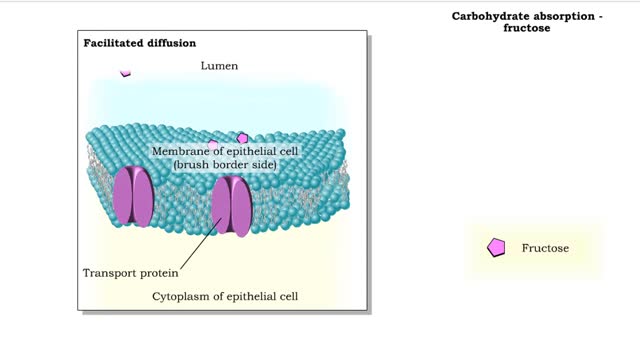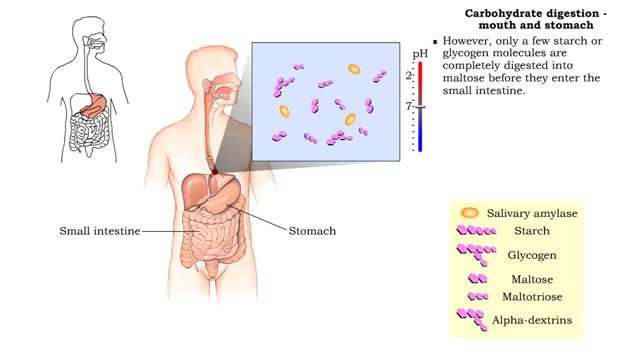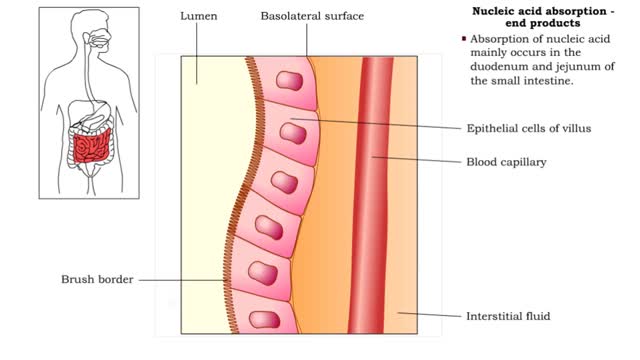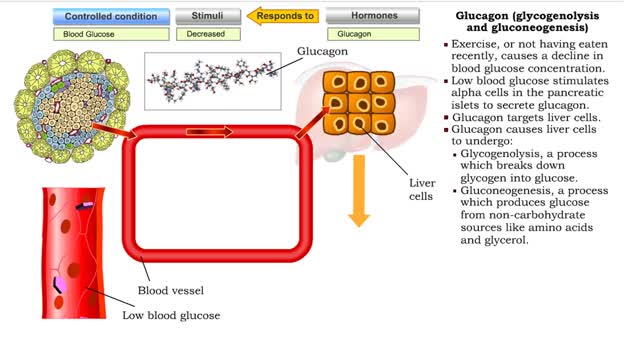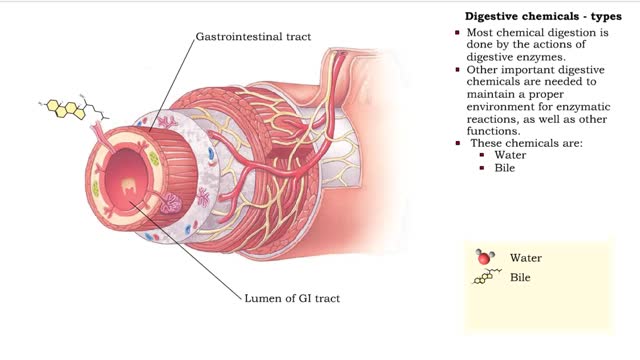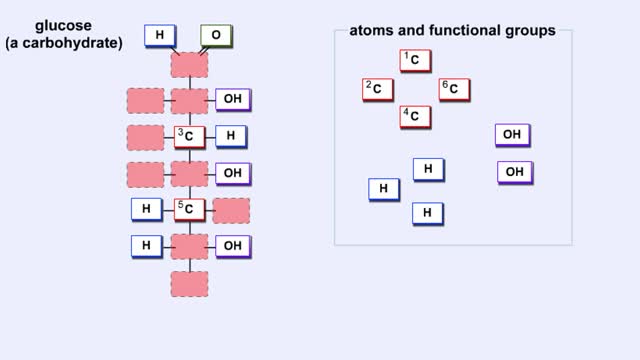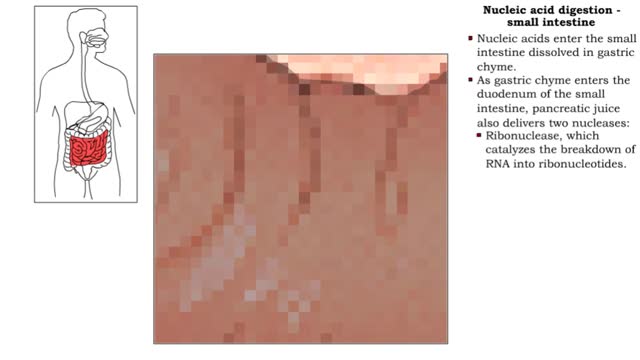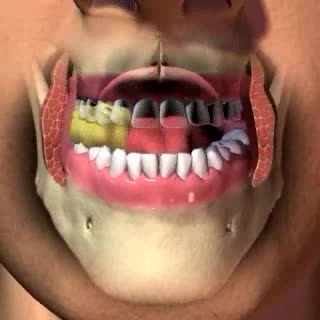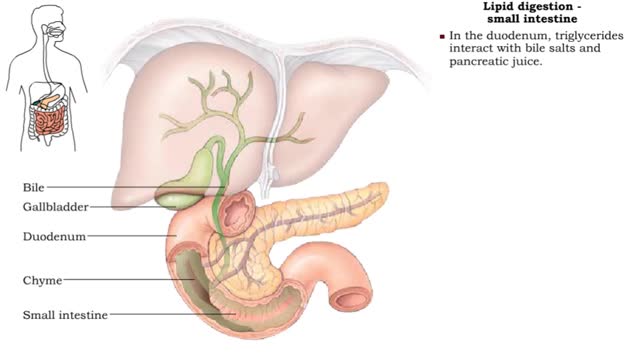Search Results
Results for: 'Carbohydrate digestion'
Carbohydrate digestion (brush border enzymes, end products) & Carb absorption (fructose, galactose)
By: HWC, Views: 10984
• Carbohydrate digestion concludes in microvilli of the small intestine, in brush border epithelial cells. Carbohydrate digestion -brush border enzymes • Four brush-border enzymes are involved: • Alpha-dextrinase breaks down alpha-dextrin chains by removing glucose units. • Sucras...
Carbohydrate digestion - mouth and stomach & pancreas and small intestine
By: HWC, Views: 10922
• Digestion of complex carbohydrates (starches and glycogen) involves: • Amylases produced by the salivary glands and pancreas. • Brush-border enzymes in small intestine. • In the mouth, amylase from the parotid and submandibular salivary glands begins carbohydrate digestion. �...
Nucleic acid digestion - brush border enzymes, end products & transport mechanism
By: HWC, Views: 10906
• Further digestion occurs at the microvilli (brush border) of the epithelial cells of the villi in the small intestine. • Two brush border enzymes complete nucleic acid digestion: • Phosphatases, which catalyze the cleavage of a phosphate to form a nucleoside (nitrogenous base and pent...
Glucagon (glycogenolysis and gluconeogenesis)
By: HWC, Views: 10867
• Exercise, or not having eaten recently, causes a decline in blood glucose concentration. • Low blood glucose stimulates alpha cells in the pancreatic islets to secrete glucagon. • Glucagon targets liver cells. • Glucagon causes liver cells to undergo: • Glycogenolysis, a proce...
Digestive chemicals - types & enzymes
By: HWC, Views: 11116
• Chemical digestion breaks down food as it moves through the digestive tract. • Using enzymes and other digestive chemicals, the process reduces food particles into nutrient molecules that can be absorbed. • Most chemical digestion is done by the actions of digestive enzymes. • O...
What Are Carbohydrates? Importance of Carbs & High Carb Food
By: HWC, Views: 11228
We hear a lot about carbohydrates in the news. Everybody seems to be on a low-carb diet. The news media often has stories on this diet fad, and companies are busy producing products with reduced carbohydrates. What's this fascination with carbohydrates? In a word: "Diet." The fact is that carb...
Nucleic acid digestion -small intestine
By: HWC, Views: 11185
Nucleic acid digestion, which takes place in the small intestine, involves: • Pancreatic nucleases. • Brush-border enzymes in the small intestine. • Nucleic acids enter the small intestine dissolved in gastric chyme. • As gastric chyme enters the duodenum of the small intestine, p...
By: Administrator, Views: 14740
The mouth or oral cavity is formed by: - The hard and soft palates at the top or roof - the cheeks - the tongue - the lips Contains the teeth and salivary glands. The gingivae (gums) surround the necks of the teeth. The lingual frenulum is a thin fold of mucous membrane that connects...
Lipid digestion - mouth, stomach and small intestine
By: HWC, Views: 11180
• Lipid digestion takes place primarily in the small intestine; some occurs in the mouth and stomach. • Lipases are enzymes that break down triglycerides and phospholipids. • Lingual and gastric lipases hydrolyze a small amount of triglycerides. • End products are fatty acids and...
Advertisement



